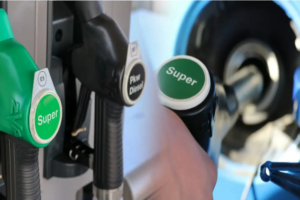Due to the emergence of Fintech, we have witnessed a significant transformation in the banking sector during the past ten years. Technology has made banking simpler, more available, and more accessible than ever before, making it an exciting moment to be alive. If you’re anything like me, you can still picture going into your neighbourhood bank branch, filling out the necessary paperwork, standing in queue and then having to wait days for approval. But those times are long gone, and we now have access to a wide choice of cutting-edge solutions that are revolutionising the banking industry.
What then is Fintech? Fintech is short for financial technology. It is the application of technology to the delivery of financial services, increasing its effectiveness and consumer accessibility. Over the past few years, the US Fintech industry has experienced remarkable growth, and there are no indicators that this growth will stop. The US is one of the main markets for Fintech adoption, with a CAGR of 23.58% predicted for the worldwide Fintech market between 2021 and 2026, according to a report by Statista.
The development of fintech in the US, its effects on the banking sector, and the future of banking as we know it will all be discussed in this blog article. We’ll also explore the most cutting-edge Fintech products available in the US and look at how they’re facilitating universal access to banking. So secure your seatbelts and get ready to discover the fascinating Fintech industry!
Fintech innovations
Since its inception, fintech has advanced significantly. Initially, the main goals of Fintech solutions were to automate and streamline financial procedures. However, as new technologies have emerged, Fintech has developed to offer a variety of cutting-edge solutions that are altering the way we bank. Fintech solutions are enhancing banking for everyone by enhancing accessibility, efficiency, and security across the board, from digital payments and mobile banking to blockchain and cryptocurrency.
Some of the most cutting-edge Fintech products available in the US are robo-advisors like Betterment and Wealthfront, digital banks like Chime and Ally Bank, and mobile payment apps like Venmo and Square Cash. By enabling us to easily make payments, invest, and manage our accounts, these tools have revolutionised the way we handle our money.
Both consumers and corporations can greatly benefit from fintech. Now that banking services are available online, both consumers and businesses can streamline their financial operations and cut costs. The risk of fraud and other financial crimes is decreased by the increased security and transparency of fintech solutions. Overall, Fintech has improved banking for everyone’s convenience, affordability, and accessibility, and the future of the sector appears more promising than ever.
Mobile banking and electronic payments
Over the past few years, mobile banking has experienced remarkable growth in the US as more and more people choose to handle their finances on their smartphones. Business Insider Intelligence estimates that by 2023, there will be 160 million US mobile banking customers, up from 119 million in 2018.
The popularity of digital payments has also significantly increased, with more people choosing to use their mobile devices to complete transactions. Cash or cheques are no longer necessary to transfer or receive money when using popular mobile payment apps like Venmo, PayPal, and Cash App.
It is impossible to emphasise how convenient digital payments and mobile banking are. Without having to go to a bank branch, consumers can now manage their affairs and make payments whenever they want, from anywhere. Banking is now easier to access and more practical, especially for people who reside in remote locations or have busy schedules. It’s interesting to see what the future holds for these cutting-edge solutions, which have surely revolutionised the way we bank with the emergence of mobile banking and digital payments.
Bitcoin and Blockchain Technology
Blockchain technology creates a distributed digital ledger that keeps track of all transactions made between computers. Its potential to increase security, transparency, and efficiency in a variety of areas, including finance, has helped it gain favour in recent years.
Blockchain technology is being utilised in the Fintech industry to develop new financial services and products, including peer-to-peer lending and smart contracts. Blockchain-based solutions reduce the risk of fraud and other financial crimes since they are more transparent and secure than traditional financial systems.
In the US, cryptocurrencies like Bitcoin and Ethereum have experienced considerable growth as more investors and companies discover their potential. Because it makes international payments quicker, cheaper, and more secure, cryptocurrency is revolutionising the banking sector. It’s an exciting time to be active in fintech because it’s also presenting new investment options for customers and companies.
Machine learning (ML) and artificial intelligence (AI)
Bank operations are being revolutionised by artificial intelligence (AI) and machine learning (ML), which allows them to analyse massive volumes of data rapidly and accurately. Banks are adopting AI and ML to automate processes, enhance fraud detection, and give consumers individualised financial advice.
For instance, banks use chatbots to automate the loan application process and provide customer support. In order to lower the risk of financial crimes, AI and ML are also being used to analyse transaction data and spot fraudulent activity in real-time.
Both consumers and corporations may greatly benefit from AI and ML. It is now simpler for consumers to manage their finances thanks to the availability of personalised financial advice and services. Businesses may focus on expansion and innovation by using AI and ML to simplify processes and cut expenses. Overall, AI and ML are revolutionising the financial sector, and they have enormous future potential.
American Fintech Regulations
Various restrictions, such as consumer protection laws, anti-money laundering (AML) laws, and data privacy laws, apply to fintech businesses in the US. These rules aim to safeguard customers and guarantee the safe and secure delivery of financial services.
However, regulation also presents difficulties for Fintech businesses, particularly when negotiating a complicated and dynamic regulatory environment. Due to resource constraints, some Fintech companies may find it challenging to comply with regulations, while others may find it challenging to keep up with evolving laws and regulations.
Increased consumer protection, enhanced market stability, and level playing fields for all financial service providers are all advantages of Fintech regulation. Some contend, however, that over-regulation can hinder innovation and restrict competition, which may eventually hurt consumers. Regulators must strike a balance between safeguarding consumers and promoting innovation in the Fintech sector.
The US Fintech Industry’s Future
Fintech in the US has a bright future ahead of it, with further expansion and innovation anticipated in the years to come. The application of AI and ML in financial services, as well as the emergence of new technologies like decentralised finance (DeFi) and non-fungible tokens (NFTs), are all predicted to accelerate the acceptance of digital payments.
Fintech businesses will yet encounter difficulties as well, such as heightened competition and regulatory scrutiny. They will need to concentrate on gaining the trust of customers and making sure that their goods and services are trustworthy and safe.
The traditional banking sector will be significantly impacted by fintech, and will face greater pressure to adopt new technology and offer clients more individualised and practical services. To be competitive in the changing financial landscape, banks may need to work with Fintech firms or make investments in their own digital capabilities. Overall, the US fintech industry’s future is promising and exciting.
Conclusion
In conclusion, the emergence of fintech in the US has revolutionised the banking and financial sector by bringing more convenient, individualised, and secure financial services to individuals and enterprises. We have looked at the development of fintech, the rise of mobile banking, the usage of cryptocurrencies and blockchain technology, the effects of AI and ML, and the potential and problems encountered by fintech businesses.
Technology will undoubtedly continue to play a significant part in influencing the financial landscape as we look to the Fintech industry’s future. Investigating Fintech solutions that provide better convenience, transparency, and efficiency can be very beneficial for both consumers and enterprises.
There are several Fintech choices available for consumers wishing to improve their financial lives, including mobile banking, digital payments, blockchain-based solutions, and AI-powered financial counselling. Consider how these solutions might assist you in reaching your financial objectives and keep up with the most recent Fintech innovations. So go ahead and investigate Fintech options for yourself and take part in the fascinating financial industry development.
Read More You May Like:











